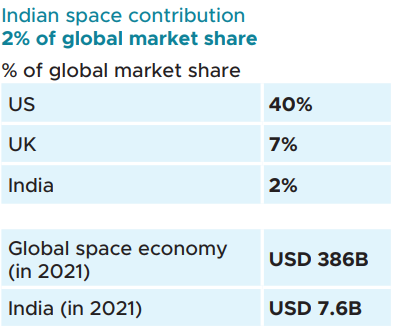7667766266
enquiry@shankarias.in
IIT-Madras based space tech startup, Agnikul Cosmos, will soon launch its small satellite rocket, Agnibaan SOrTeD (SubOrbital Technological Demonstrator).
|
Status of India in Global Space Market |
|

|
Agnibaan |
|
Indian Space Research Organisation formed in 1969. It is under Department of Space overseen directly by the Prime Minister of India
References